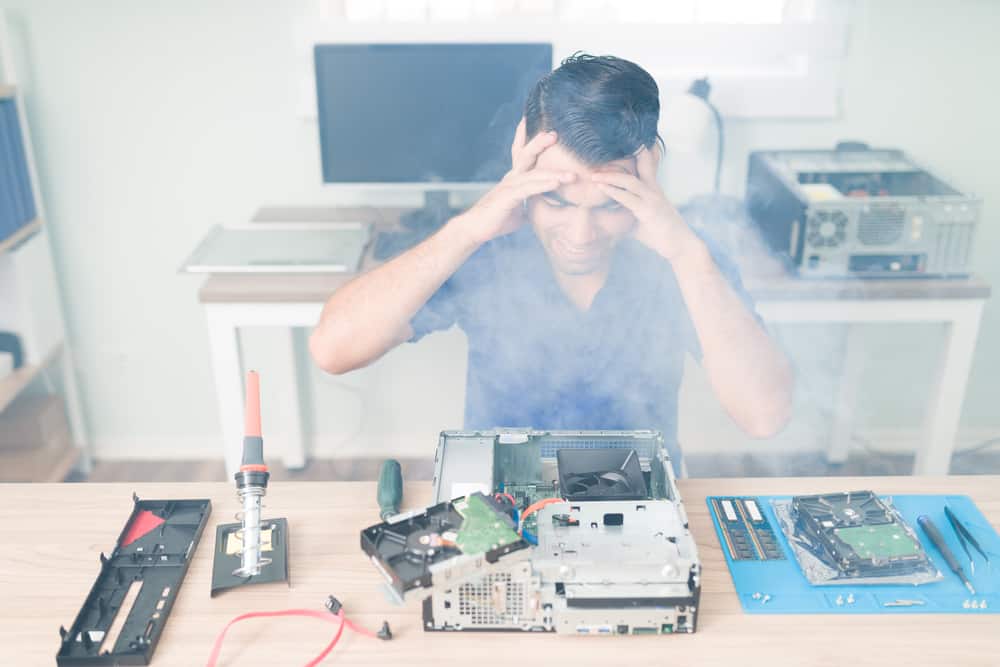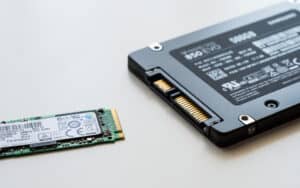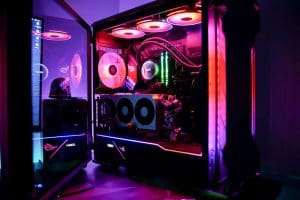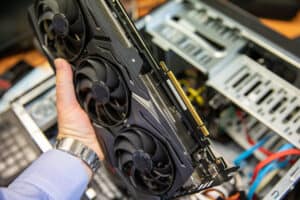
Just as a dying heart is a dying man, so is a dying CPU, a dying computer. This is why the CPU is referred to as the heart of the computer. But as durable as the CPU is, it will also wear over time, and you need to know what to look out for before it crashes.
Many of the activities we do on the computer inadvertently affect the CPU, so the CPU was built to be durable. However, more demanding apps are made, and we use the CPU more as time goes by.
The occasional stress, temperature change, and other factors will one day cause the CPU to reach a breaking point, and one day after another, it starts to malfunction. When the CPU begins to malfunction, it gives apparent symptoms, which will serve as a warning to replace it. This article will help you recognize these signs and common causes of a dying CPU.
Signs That Tell if Your CPU is Dying
Here are some of the signs that might indicate your CPU is dying.
Your Computer Shuts Down Without a Warning
It cannot be very pleasant when your computer goes off without giving notice. The first time it happens, you might regard it as a low battery issue. But when it keeps recurring, and at random times, you should see it as a warning sign from your CPU.
As random as this occurrence may be, it usually happens when the CPU overheats due to work overload. If this continues without a remedy, the CPU will eventually stop working.
Overheats Frequently
An overheating computer is harmless until it causes the computer components to burn and the computer to shut down without warning. When your computer overheats, if a malfunctioning fan does not cause it, it is caused by a stress load on the CPU. And if it happens at the slightest use, it might be a sign of a failing CPU.
Freezing and Slow Response
When you are working on the computer, but it will not respond on time or freezes for a while, it is most likely a failing CPU effect. This can happen when you are starting up the computer or while the computer is not in use.
But you can quickly get rid of this effect when you troubleshoot the computer.
Boot-up Problem
Every time you start your computer, it brings up an error message done by the Power-on self-test. This test might sometimes detect an issue and give details of the issue.
But most times, the test might not be able to correctly diagnose and point out the real problem, which can be a dying CPU problem.
This problem can also come in other forms.
- Your computer is not turning on.
- Your computer comes on for a few seconds, then goes off before it displays.
All these can be a sign of other computer components’ problems, but the CPU is not excluded from these parts.
System Error
There is something called Blue Screen of Death. An error message comes up telling you why your computer crashed and how your computer can not operate. It was probably due to its color and the message it brings that it was given the name Blue Screen of Death.
Causes of a Dying CPU
There are different reasons why your CPU can be failing, but the most common reasons are mentioned below.
Usage
No matter how carefully you take care of your CPU, it will still weaken over time. The CPU is in its best state within the first three to five years of usage.
Although it iht not be the first component to fail in your computer, it will still wear out with time. And you do not have to wait till it dies before you realize it needs an update.
Overheating
Overheating is a common problem, and it can cause so much damage to the CPU that it ends up dead. Overheating can be due to the external temperature or the work being done on and by the computer.
If you frequently notice signs of overheating, you can get an external cooling system. And while in use, place the computer where it can get enough airflow.
Overworking
This is mainly done by gamers or people who use editing apps. Gaming and editing apps are known to stress the CPU, so using them for a long while will over-stress it and cause side effects like overheating.
Power surge
When there is a sudden increase in the voltage either from the power source or caused by lightning, it can cause significant damage to many parts of the computer, including the CPU. To avoid this, get a surge protector for your computer.
Conclusion
A dying CPU is not the end of your computer; a CPU upgrade can revive your computer and make it as good as new. So, get an alternative as soon as you notice signs of a dying CPU, boot-up errors, overheating, sudden shutdowns, computer freezes, slow response, system error, and a few other abnormalities.
You can rest assured that the new/ upgraded CPU will last for a while before it weakens. I hope the information in this article has been able to explain signs you will notice in a dying CPU.
Frequently Asked Questions
Even though the motherboard and CPU work together, a dead CPU can only cause damage to the motherboard; it can not kill it. A dead/ dying CPU will consume more power than usual, and this can cause fluctuation in the voltage regulation module or fried motherboard parts.
Without external or intentional damage, the CPU will still wear out, but the best care for your CPU is the following:
Temperature Regulation: Overheating is a common cause of dying CPU. To prevent early CPU damage, check your computer’s temperature while using it. And if you intend to stress the computer, get good cooling systems
Surge Protector: Hike in power supply voltages are sudden and can not be predicted, the best way to protect your CPU from getting burnt is to get a surge protector.
Repair damaged computer components: indirectly, damaged parts of the computer can affect the CPU. For example, a damaged fan will cause overheating which can damage the CPU, damaged software can cause stress to the CPU. So, make sure all components are in good conditions
Desktops generally are known to last longer because they are less prone to overheating, falls, and they can be easily maintained. A desktop can be easily opened and cleaned, and they have more space for ventilation in the computer.
Although a laptop does not have these features, if well maintained, it can last more than five years without an upgrade. And a lasting computer means a lasting CPU.
– Cleaning certain parts of your computer (like the fan), will aid in the effective running of the parts, hence, smooth running of the computer. If the parts of the computer are working well, the CPU will have fewer reasons to be affected.is one major cause and symptom of CPU damage. To prolong the CPU’s lifespan, get an external cooling system for the computer.
– Power supply regulation: Hike in voltage of power supply are usually sudden and unpredictable. It is advisable to have a power surge protector to regulate the power supply in case of a power surge.
Generally, desktop computers are known to last longer because their parts can be easily cleaned, easily maintained, and have bigger space for cross ventilation.
But even though these factors are not found in laptops, if they are well maintained, laptops can last up to 5 years without an upgrade.
Cleaning certain parts of your computer (like the fan) makes it function more efficiently. And, well-functioning parts reduce the chances of a damaged CPU.
The CPU and computer as a whole should not be subject to a temperature higher than 50 degrees Celsius. The best temperature for the CPU is between 30 and 50 degrees celsius.
Anything higher than that will cause overheating, making the fan overwork and also causing damage to the CPU.
Although low temperatures are not as harmful to the computer as high temperatures, it is also not advisable for the computer. Very low temperatures can affect the speed of the computer and some components of the computer.







